Boatbuilding Tips
Our vast collection of boatbuilding tips, drawn from decades of experience in supporting backyard boatbuilders.

8 Ways to Accurately Measure Epoxy - Complete G...
Accurate measurement of resin and hardener is crucial for successful epoxy application, as an incorrect mix can result in weak or uncured epoxy. This video explores eight methods for measuring...
8 Ways to Accurately Measure Epoxy - Complete G...
Accurate measurement of resin and hardener is crucial for successful epoxy application, as an incorrect mix can result in weak or uncured epoxy. This video explores eight methods for measuring...

Painting & Varnishing FAQs
Click Here to Skip Directly to the Table of Paint & Varnish Quantities by Boat. Do we epoxy and fiberglass over the paint? No, the epoxy will not be useful...
Painting & Varnishing FAQs
Click Here to Skip Directly to the Table of Paint & Varnish Quantities by Boat. Do we epoxy and fiberglass over the paint? No, the epoxy will not be useful...

Finishing and Launching a Wood Duck 12 Kayak
After months of stitching, gluing, glassing, sanding, and painting the Wood Duck 12 kayak is finally ready for its big moment! In this video, Bob Emser of The Art of...
Finishing and Launching a Wood Duck 12 Kayak
After months of stitching, gluing, glassing, sanding, and painting the Wood Duck 12 kayak is finally ready for its big moment! In this video, Bob Emser of The Art of...

Padding Seats
It's no secret that everyone's, um, tush is different, so here are three ways anyone can get a well-padded and comfortable seat. Method 1 - Cut two layers of 1/2"...
Padding Seats
It's no secret that everyone's, um, tush is different, so here are three ways anyone can get a well-padded and comfortable seat. Method 1 - Cut two layers of 1/2"...

Sanding & Foot Braces (S4 E20)
Do You Hate Sanding? Bob Emser doesn't! Sanding epoxy on a kayak is more than a step in construction—it is a quiet act of reflection. What begins as a practical...
Sanding & Foot Braces (S4 E20)
Do You Hate Sanding? Bob Emser doesn't! Sanding epoxy on a kayak is more than a step in construction—it is a quiet act of reflection. What begins as a practical...
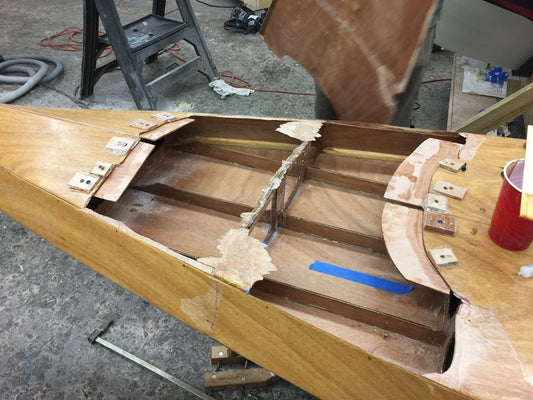
Surviving a Wooden Boat Catastrophe
This demo model Kaholo 12-6 got crunched. Most of us wrote it off, but CLC boatbuilder Travis Guthrie said he could make it right. Can he? There was a gaping...
Surviving a Wooden Boat Catastrophe
This demo model Kaholo 12-6 got crunched. Most of us wrote it off, but CLC boatbuilder Travis Guthrie said he could make it right. Can he? There was a gaping...

Sharpening Tools
How to sharpen wood planes quickly and easily.
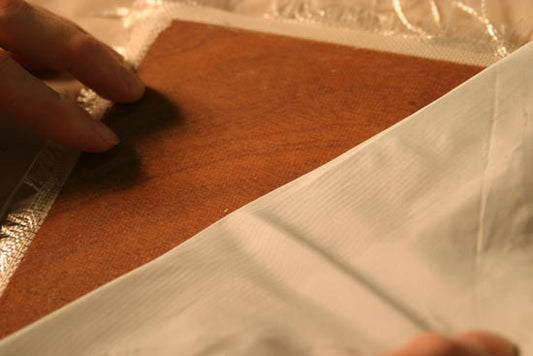
Peel Ply for Smooth Fiberglass Surfaces
We’ve written before about the challenge of getting smooth surfaces with epoxy and fiberglass. It takes at least three coats of epoxy to “fill the weave,” and then hours of...
Peel Ply for Smooth Fiberglass Surfaces
We’ve written before about the challenge of getting smooth surfaces with epoxy and fiberglass. It takes at least three coats of epoxy to “fill the weave,” and then hours of...
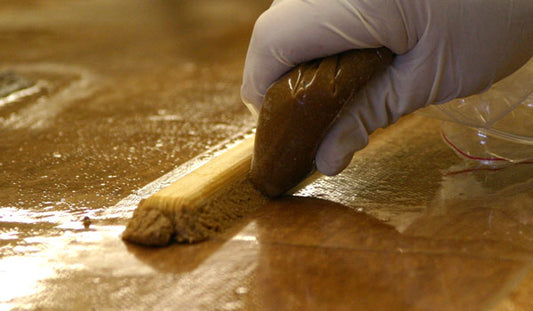
Pastry Bags for Epoxy Fillets
In stitch-and-glue boatbuilding. epoxy "fillets" are what hold everything together. Whether you are filling the seams on a Lapstitch™ hull or you are bonding bulkheads to the hull shell, you'll...
Pastry Bags for Epoxy Fillets
In stitch-and-glue boatbuilding. epoxy "fillets" are what hold everything together. Whether you are filling the seams on a Lapstitch™ hull or you are bonding bulkheads to the hull shell, you'll...
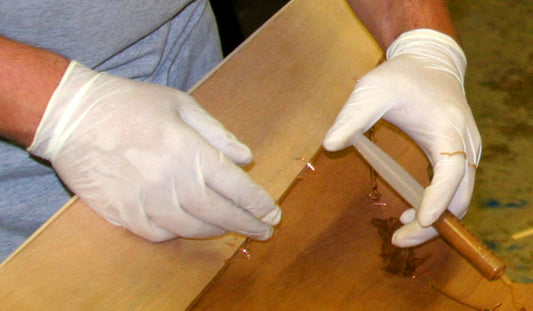
Safe Boatbuilding (Part 1) by Dave Carnell
By Dave Carnell [The guys at MAS Epoxies turned us on to Dave's excellent safe-boatbuilding essay, and it is used here with Dave's permission.] Chemicals are commonly conceived as a...
Safe Boatbuilding (Part 1) by Dave Carnell
By Dave Carnell [The guys at MAS Epoxies turned us on to Dave's excellent safe-boatbuilding essay, and it is used here with Dave's permission.] Chemicals are commonly conceived as a...
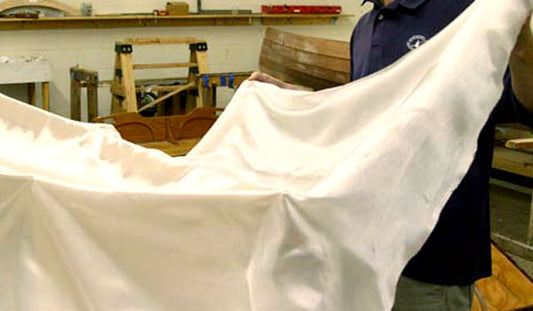
Fiberglassing
Fiberglass is just what it sounds like: very fine strands of glass, just like the stuff in a window pane, woven into a cloth that vaguely resembles white burlap. Bonded...
Fiberglassing
Fiberglass is just what it sounds like: very fine strands of glass, just like the stuff in a window pane, woven into a cloth that vaguely resembles white burlap. Bonded...
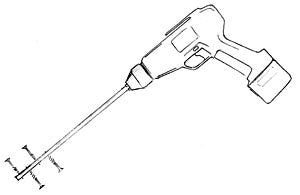
Epoxy Mixer
Professional boatbuilders agree that 90 percent of epoxy problems are caused by insufficient mixing. Well, we mix a lot of epoxy at CLC, so we made this neat little epoxy...
Epoxy Mixer
Professional boatbuilders agree that 90 percent of epoxy problems are caused by insufficient mixing. Well, we mix a lot of epoxy at CLC, so we made this neat little epoxy...
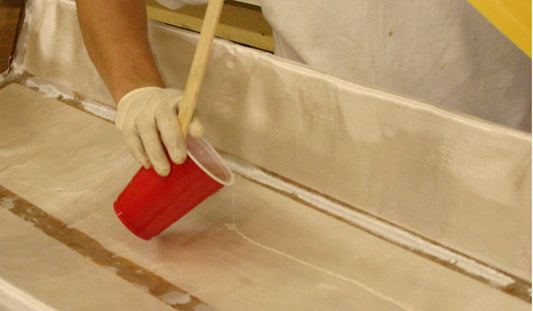
CLC Epoxy Tips and FAQ
What is the Mix Ratio? - The MAS mix ratio is 2:1 for Resin to Hardener. That ratio stays constant even when the hardeners are custom blended. If using calibrated...
CLC Epoxy Tips and FAQ
What is the Mix Ratio? - The MAS mix ratio is 2:1 for Resin to Hardener. That ratio stays constant even when the hardeners are custom blended. If using calibrated...
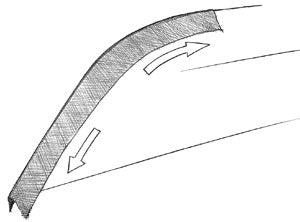
Bias-Weave Fiberglass
If you've ever struggled to make a piece of fiberglass tape or cloth lay smoothly over the sharp bow or stern of a boat you need to learn about bias...
Bias-Weave Fiberglass
If you've ever struggled to make a piece of fiberglass tape or cloth lay smoothly over the sharp bow or stern of a boat you need to learn about bias...
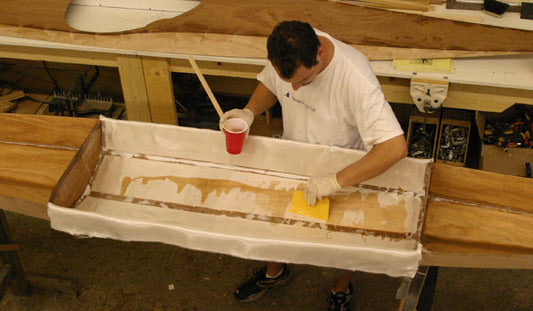
Avoiding Epoxy Fisheyes
If you've ever applied a coat of epoxy that formed "fisheyes" (round craters) or beaded (like water on a freshly waxed car), you know how hard it is to sand...
Avoiding Epoxy Fisheyes
If you've ever applied a coat of epoxy that formed "fisheyes" (round craters) or beaded (like water on a freshly waxed car), you know how hard it is to sand...
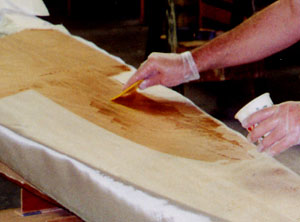
"Filling the Weave"
Without epoxy, fiberglass is just an itchy, loosely-woven fabric that you can unravel in your fingers. Saturated and bonded to plywood in a hard matrix of marine epoxy, fiberglass cloth...
"Filling the Weave"
Without epoxy, fiberglass is just an itchy, loosely-woven fabric that you can unravel in your fingers. Saturated and bonded to plywood in a hard matrix of marine epoxy, fiberglass cloth...
![Strip Planking by Nick Schade [video series]](http://clcboats.com/cdn/shop/articles/strip-planking-by-nick-schade.jpg?v=1766521432&width=533)
Strip Planking by Nick Schade [video series]
Strip Planking 01: Cutting Forms for Strip-Built Kayaks: Nick Schade writes: The first step to assuring your boat comes out right is to assure you have accurate forms. You could...
Strip Planking by Nick Schade [video series]
Strip Planking 01: Cutting Forms for Strip-Built Kayaks: Nick Schade writes: The first step to assuring your boat comes out right is to assure you have accurate forms. You could...
![Building a Strip Planked Petrel Kayak [video series]](http://clcboats.com/cdn/shop/articles/building-a-strip-planked-petrel.jpg?v=1766521545&width=533)
Building a Strip Planked Petrel Kayak [video se...
Petrel Build: 01 Making Forms for Strip Planked Kayak: Nick Schade writes: This is the first in a new series of videos showing the steps of building a wooden kayak...
Building a Strip Planked Petrel Kayak [video se...
Petrel Build: 01 Making Forms for Strip Planked Kayak: Nick Schade writes: This is the first in a new series of videos showing the steps of building a wooden kayak...
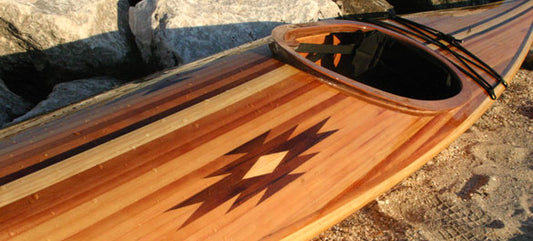
Hybrid Decks - How to Build a Kayak With a Ceda...
Most people find the look of a cedar strip deck irresistible. Several CLC kayak kits, including Shearwaters and Mill Creeks, come with cedar strip decks as an option, but did...
Hybrid Decks - How to Build a Kayak With a Ceda...
Most people find the look of a cedar strip deck irresistible. Several CLC kayak kits, including Shearwaters and Mill Creeks, come with cedar strip decks as an option, but did...

How Many Cedar Strips Will I Need?
The world of small boats is replete with handsome designs for boats meant to be skinned in thin cedar planking. There are the lovely kayaks and canoes by Nick Schade...
How Many Cedar Strips Will I Need?
The world of small boats is replete with handsome designs for boats meant to be skinned in thin cedar planking. There are the lovely kayaks and canoes by Nick Schade...
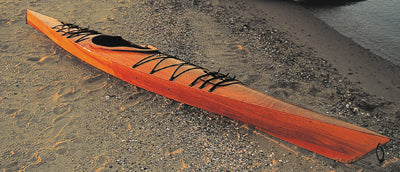
Hatches, Bulkheads, & Deck Rigging in CLC Compl...
UnderstandingIt's puzzling why anyone would ship a kayak kit without the essential accessories that all paddlers use: hatches for gear storage, bulkheads to create watertight compartments for safety in a...
Hatches, Bulkheads, & Deck Rigging in CLC Compl...
UnderstandingIt's puzzling why anyone would ship a kayak kit without the essential accessories that all paddlers use: hatches for gear storage, bulkheads to create watertight compartments for safety in a...
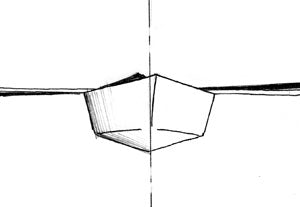
Checking for Twist
Occasionally twist can develop in any boat built without forms and a strongback. Here's a technique, called winding, allows you to quickly check that your kayak is straight. Before taping...
Checking for Twist
Occasionally twist can develop in any boat built without forms and a strongback. Here's a technique, called winding, allows you to quickly check that your kayak is straight. Before taping...
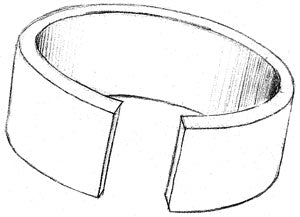
Cheap Clamps
How many clamps does it take to build a kayak? With only 15 it's tough; 25 is better. We've often used 40 or 50. So even if you buy only...
Cheap Clamps
How many clamps does it take to build a kayak? With only 15 it's tough; 25 is better. We've often used 40 or 50. So even if you buy only...

Cabinet Scrapers for Boatbuilding
Boatbuilders seeking to ease the tedium of sanding have latched onto a very old-fashioned tool to deal with a high-tech problem: cabinet scrapers to smooth cured epoxy. Cabinet scrapers are...
Cabinet Scrapers for Boatbuilding
Boatbuilders seeking to ease the tedium of sanding have latched onto a very old-fashioned tool to deal with a high-tech problem: cabinet scrapers to smooth cured epoxy. Cabinet scrapers are...

